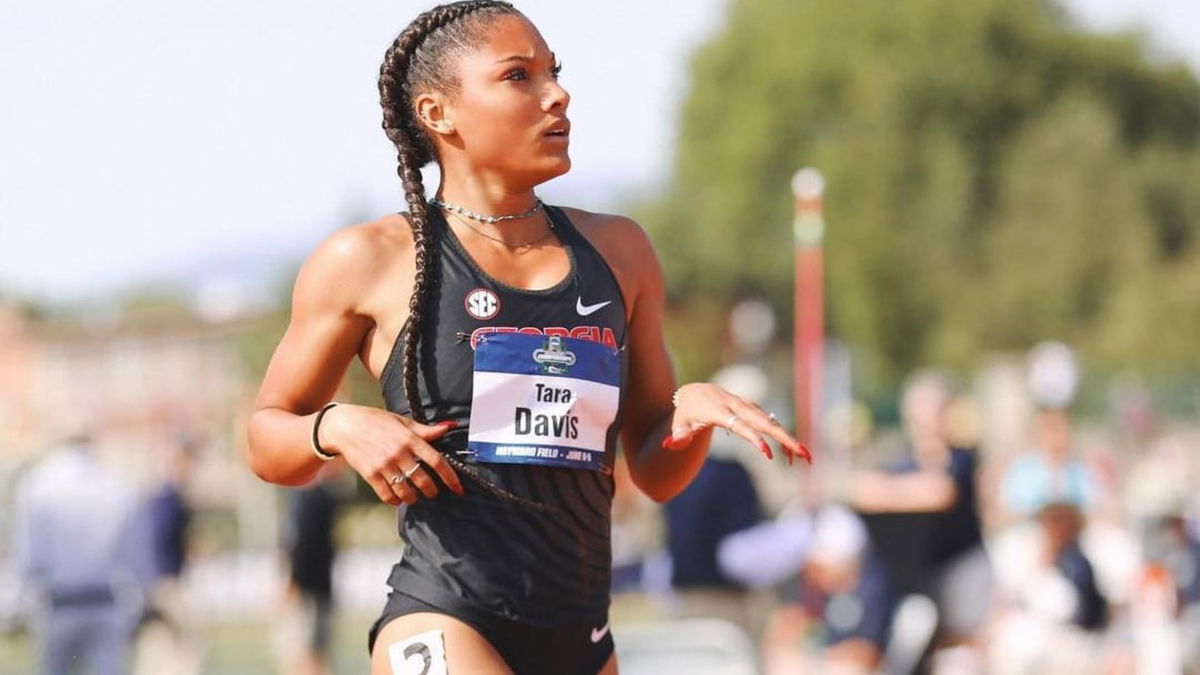

What should’ve been a celebration of victory became a painful lesson in restraint for Clara Adams. The North Salinas High School sophomore blazed across the finish line to win the 400 meters at the California state championships, earning what should have been a career-defining title. But her joy expressed through a playful “fire extinguisher” celebration was short-lived. Officials from the California Interscholastic Federation called it unsportsmanlike, revoked her championship, and disqualified her from the 200 meters entirely. Just like that, a moment of youthful exuberance became the center of a national storm.
Watch What’s Trending Now!
The fallout has been swift and polarizing. Was Clara simply expressing well-earned pride, or did her celebration cross a line? The debate over what counts as acceptable celebration in track and field is raging, and into that fire has stepped Olympic champion Tara Davis-Woodhall. A vocal advocate for mental health and individuality in sport. “Maybe I just want to quit,” she once admitted, opening up about her own battles with depression and body image. Now, she’s lending that hard-earned voice to defend a teenager whose only mistake was being too joyful on the biggest stage.
Tara Davis-Woodhall took to Instagram Stories posting a screenshot of Clara Adams’ press interview, showing the young sprinter beside her father and a fire extinguisher. The very item at the heart of the controversy. Overlaying the image, Tara didn’t hold back, “Wack on the officials! Let that girl celebrate with a fire extinguisher” followed by a laughing emoji. It was short, direct, and powerful. A champion standing firmly behind a high school athlete whose moment was snatched away not by a rival, but by a ruling. What makes this even more painful is that Clara’s celebration wasn’t some spontaneous or arrogant stunt. It was a nod to track history.
ADVERTISEMENT
In 2004, track legend Maurice Greene had his coach douse his spikes with a fire extinguisher after a win. An act of theatrical showmanship that still lives on in the sport’s folklore. Clara’s version? Quiet. Off the track. Away from competitors. And yet, she was penalized. “They yelled at me,” Clara told the Monterey Herald. “They took my moment away from me.” Her father, David Adams, echoed her sentiment, saying, “She was on the other side of the wall. I told her to step off the track. She did not spray her shoes on the track. We have protested the decision. I feel it was racially motivated.”

ADVERTISEMENT
“Are officials restricting athletes’ expression on the track?” asked Rori Dunk on X and it’s a question that’s increasingly urgent. Track and field loves to showcase individuality until it’s deemed too bold, too loud, or too different. And Tara Davis-Woodhall, who’s lived through that tension, is using her platform not just to win medals, but to spark change. Her support for Clara is about more than one incident. It’s about fighting for a culture where young athletes can express joy without fear of being punished for it.
ADVERTISEMENT
Tara Davis-Woodhall on owning her struggles and celebrating her strength
Tara Davis-Woodhall is helping redefine what it means to be a strong athlete. Not just in body, but in mind. Alongside voices like Simone Biles and Noah Lyles, she’s showing the world that even the most electrifying talents have internal battles that often go unseen. For Tara, the path to embracing her full self wasn’t easy. Between a lingering back injury, the disruptions of COVID, and a school transfer, she found herself in a dark place. One that nearly made her walk away from the sport altogether. “Mentally, I was in a really dark place. I just didn’t want to be here anymore,” she admitted. Therapy, the support of loved ones, and a willingness to speak up changed everything.
Tara’s journey also included battling body dysmorphia, a condition that had her constantly scrutinizing her powerful physique. Growing up, she faced ridicule for her muscular build. Boys teasing her for “looking like a boy.” It wasn’t until she saw athletes like Ivana Spanovic, unapologetically strong and successful, that her perspective began to shift. “I knew that is what it takes to become the best,” Tara realized. That revelation helped her reclaim pride in her body and sparked a new mission. Advocating for mental training just as intensely as physical conditioning. “I practice so much of my physical, why not practice our mental, too?”
ADVERTISEMENT
Top Stories
Patrick Mahomes’ Dad Faces 10-Year Prison Sentence After Chiefs QB’s Father Reportedly Violated Probation Terms

Prayers Pour In From Jordan Love & Co. as Cowboys Star Mourns Tragic Personal Loss

Justin Jefferson Makes Final Decision on Joining Buffalo Bills After Further Damaging J.J. McCarthy Relationship

Matthew Stafford Makes Final Decision on Retirement After Narrowly Beating Drake Maye For NFL MVP

Multiple PGA Tour Pros Stopped from Playing as WM Phoenix Open Round Is Canceled Over Recurring Problem

PGA Tour Split Into Two as Scottie Scheffler Confirms Stance on Patrick Reed’s Return

Now supported by both therapy and her husband, Paralympian Hunter Woodhall, Tara lives with more freedom and purpose than ever before. She’s not hiding anymore. “I couldn’t be myself for a while and it sucks. Now that I am, I’m not going back,” she declared. Her boldness, both on and off the track, sends a message that’s bigger than sport. Real strength includes vulnerability, honesty, and the courage to show up as your whole self.
ADVERTISEMENT
ADVERTISEMENT
ADVERTISEMENT